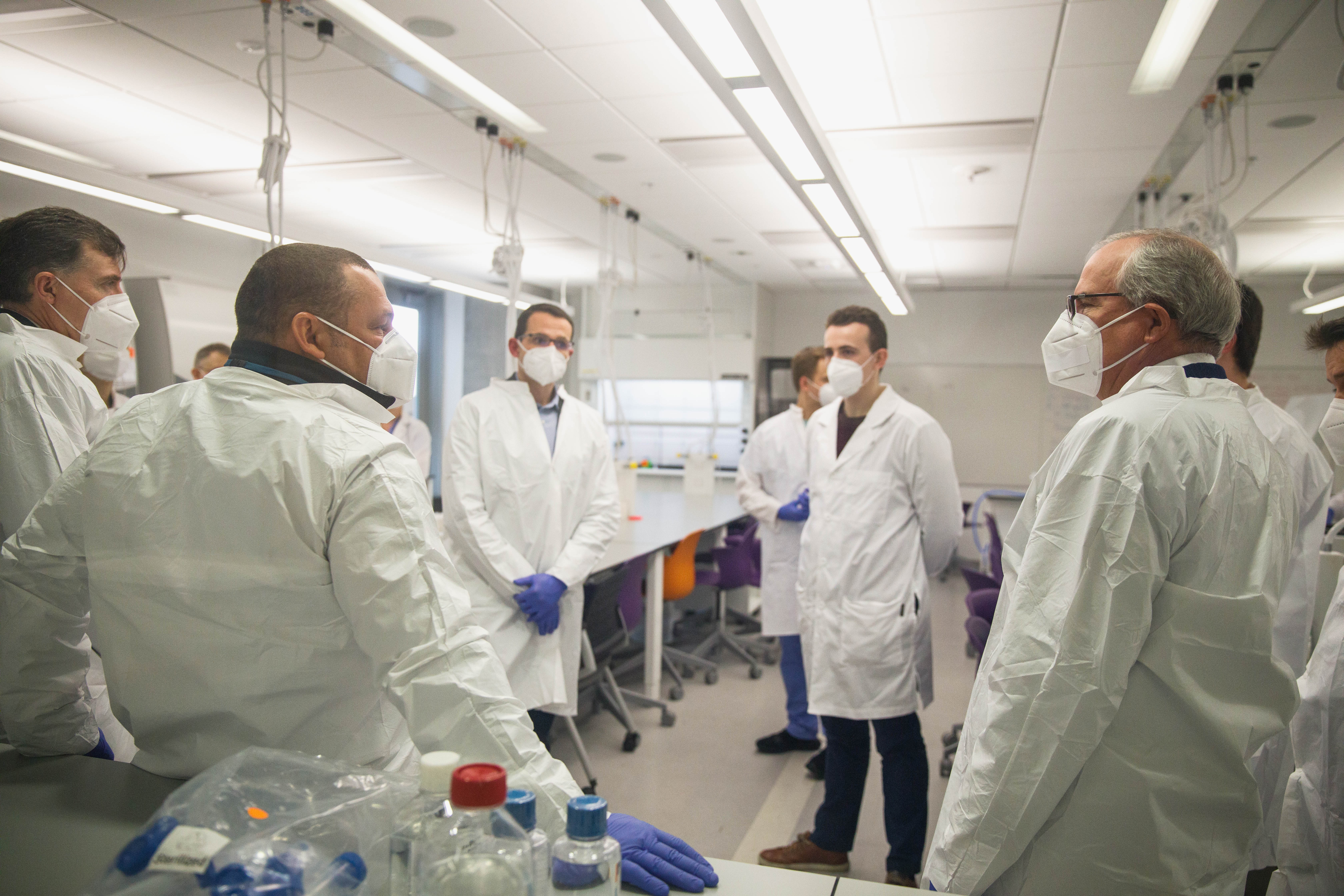WASHINGTON, DC (April 29, 2020) – The George Washington University Milken Institute School of Public Health (GW Milken Institute SPH) today announced signing an agreement with Curative, Inc. to provide laboratory space for the company to start testing U.S. military personnel for the virus that causes COVID-19. The testing, conducted by Curative in the GW Milken Institute SPH Biosafety Level 2 Laboratory (BSL-2), will help scientists understand the spread of the virus, help the U.S. military maintain readiness, and ultimately will help with reopening the economy.
Curative will begin processing up to 50,000 tests per day in the GW BSL-2 lab as part of an agreement it recently signed with the U.S. Air Force. The U.S. Air Force will deploy test kits to military personnel and train them to perform a simple swab for oral fluids. Curative’s test kit, which was authorized by the U.S. Food and Drug Administration, is a simple-to-use oral swab test that does not create exposure for healthcare workers during sample collection.
“We are proud to be a part of this partnership to launch testing of U.S. military personnel for the virus that causes COVID-19,” said GW President Thomas J. LeBlanc. “Our BSL-2 laboratory offers a secure environment in order to process the tests, which will offer valuable information in the fight against this virus.”
Curative will conduct this work in the GW Milken Institute SPH BSL-2 and additional space provided by the GW Department of Anthropology, all located in the GW Science and Engineering Hall, which is equipped with state-of the-art laboratories and equipment.
Curative has tested more than 100,000 people for COVID-19 and is currently processing about 6,000 tests per day for residents of Los Angeles. The test kits include a swab for collecting oral fluids from the inside of the mouth. The military will then send the samples, which contain deactivated virus, to the laboratory at GW Milken Institute SPH for testing with polymerase chain reaction. Test results will be available within 24 hours.
The agreement between Curative and the U.S. Air Force includes the cost of building more than 40,000 test kits and training military troops to perform the easy-to-use swabs. If the initial launch shows the testing can be ramped up, Curative will establish eight additional testing locations across the United States to support testing of the U.S. population. The Curative test kits are considered lower risk than deep nasal swabs, which can deplete scarce personal protective equipment and can potentially expose healthcare workers to the virus.
Curative is a California-based company founded in January to test for life-threatening blood infections called sepsis. The start-up shifted gears in response to the COVID pandemic and has redirected its manpower to help the nation conduct COVID testing.
“We will not make progress toward bringing our economy back online until we have comprehensive testing across the United States, and that means we need easy to administer, highly scalable tests now,” said Fred Turner, CEO, Curative. “We’re proud to be working with the U.S. military and GW Milken Institute SPH to demonstrate just how rapidly we can scale our oral fluid test. We look forward to partnering with other universities across the country as we bring this test to our global Armed Forces and beyond.”
The GW Milken Institute SPH BSL-2 laboratory and additional space, located just a few miles from the Pentagon and many federal office buildings, offers an ideal location for this unique partnership to power up the U.S. response to the COVID pandemic.
“The United States must expand testing for COVID-19 in order to both contain and ultimately defeat this virus,” said Lynn Goldman, MD, MS, MPH, the Michael and Lori Milken Dean of the GW Milken Institute SPH. “This partnership holds out the promise of widespread testing in the United States, which will provide us with the information we need to keep our troops and the general population safe.”


